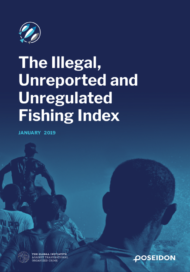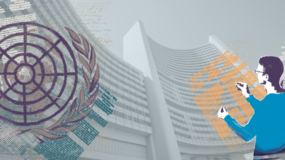Posted on 24 Mar 2022
The 65th session of the UN’s Commission on Narcotic Drugs (CND) took place from 14 to 18 March 2022, in the midst of the greatest geopolitical crisis in Europe in recent times. The invasion of Ukraine disrupted the commission’s work and highlighted Russia’s growing isolation at the UN.
The CND, along with the other Vienna-based processes linked to the UN Office on Drugs and Crime (UNODC), usually agrees on resolutions and declarations by consensus, and not through regular voting, as is the case with UN processes in Geneva and New York. But this year the usual consensus was replaced by allegations, votes, walkouts and withdrawals. However, a few resolutions managed to bypass the politics, including a Mexican-led resolution on the links between drugs and firearms, and one on trafficking in chemical precursors, led by the US.
Russia’s isolation deepens
At the meeting, Western governments condemned the Russian invasion of Ukraine, emphasizing how it will damage Ukraine’s ability to implement its drug policies as agreed under the UN drug control conventions. A number of side events that included Russia were withdrawn as other countries and organizations were not willing to cooperate with them (although the UNODC’s Executive Director shared a platform with the Russian Deputy Foreign Minister).
Russia’s candidate to represent eastern Europe on the organizing bureau of the working group tasked with improving the governance and financing of the UNODC lost overwhelmingly (33 to 6) to the Latvian candidate in a vote by the whole CND. Issues such as this would normally not be taken to a vote, which underlines the impact the Ukraine war has had on routine diplomacy. Following the loss, the Russian ambassador responded by accusing Latvia of glorifying Nazism and denying civil rights to 10 per cent of its population, prompting the second walkout of the week from Western countries attending the plenary (the first occurred when a Russian delegate made allegations about state-linked underground drug laboratories in Ukraine).
None of this helped Russia’s case as it attempted to find consensus on its resolution on the misuse of information technologies for illicit trafficking and money laundering. Although this is a controversial resolution in the context of the ongoing UN cybercrime treaty negotiations , a version of the text would most likely have reached consensus in ‘normal’ times. However, all EU countries and others, including the US, Canada, Australia and the UK, refused to engage with the negotiation, prompting another walkout when the Colombian ambassador presiding over the negotiation session invited the Russian delegation to present their resolution. At the end of the week Russia was forced to withdraw the resolution, but thanked the countries that co-sponsored it – Belarus, Cuba, Kyrgyzstan, Syria and Venezuela.
The multilateral system at risk
Despite these political tensions, this year’s CND managed to adopt four resolutions by consensus (a low number by recent standards) and a busy programme of side events took place. The most notable resolution was a Mexican-drafted text calling on greater international focus on the links between illicit trafficking of drugs and firearms, which, for Mexico and other countries, is key in terms of understanding and responding to increases in gang violence and homicide rates.
The resolution received resistance from some countries – led by Iran – who were against linking different UNODC mandates, but secured agreement to address both threats ‘in an integrated manner’ and for member states to ‘further discuss and better address’ the challenges. The resolution calls on civil society to raise awareness of these links, and the Global Initiative Against Transnational Organized Crime presented its research and analysis on the topic (with a focus on southern Africa) at a side event organized by Mexico.
A US-sponsored resolution on trafficking in chemical precursors was also adopted. This focuses on enhancing implementation of the relevant provisions of the 1988 UN Convention against Illicit Traffic in Narcotic Drugs and Psychotropic Substances, and on promoting international cooperation, capacity building and the UNODC’s technical assistance work. Two other resolutions related to transnational organized crime were tabled but not adopted, falling victim to the general breakdown in trust and cooperation in the shadow of the invasion of Ukraine.
The war’s geopolitical implications are undoubtedly creating tensions in the multilateral system as a whole, as well as the bodies dealing with organized crime and related topics. To what extent and for how long remains to be seen. In the meantime, diplomats, UN officials and civil society whose mandate is to improve the response to illicit markets now face a much more challenging task.
To understand how history affects the evolution of the UN drug control system, the GI-TOC co-hosted a side event to present the latest book by the GI-TOC’s director of academic engagement, John Collins, Legalizing the Drug Wars: A Regulatory History of UN Drug Control, in collaboration with the World Society of Victimology and the government of Mexico. The event can be viewed here.



